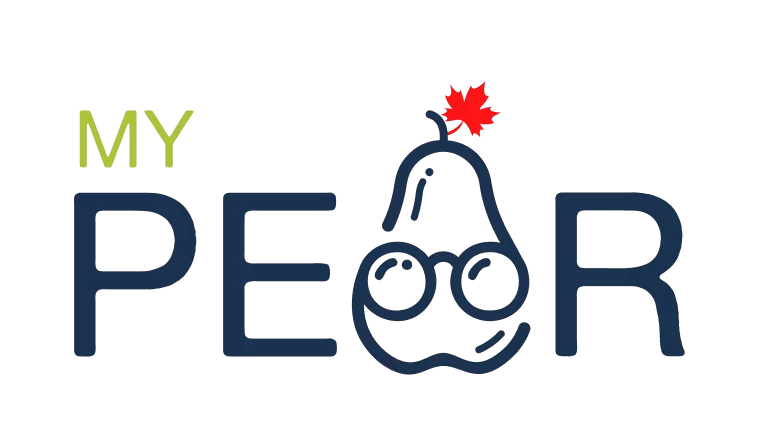Optometrists are the medical professionals who are specialized in the diagnosis and treatment of eye diseases, as well as the prescription of corrective lenses. In recent years, optometrists in various regions have gone on strike to demand better working conditions, higher pay, and other benefits. An optometrist strike is a collective action taken by optometrists to negotiate better working conditions.
The reason for the optometrist strike can vary depending on the region, but most commonly, the strike is a result of low pay and inadequate working conditions. Optometrists are highly educated professionals who must undergo intense training to obtain their qualifications. They are responsible for ensuring the health of their patients’ eyes and vision. Unfortunately, many optometrists are not compensated appropriately for their expertise and the work done. The lack of financial compensation can lead to burnout and lower quality of care.
In some cases, these strikes have been successful in securing better pay and working conditions for optometrists. However, many optometrists fear that the current system is not sustainable and that without proper reforms, the shortage of optometrists could worsen.
Overall, optometrist strikes are an indication of the critical role optometrists play in the healthcare system. They are an attempt by optometrists to secure better working conditions and better pay for their dedication to their patients. Although they can be a disruption for patients, the long-term benefits of the optometrist strike may help to ensure quality eye care for everyone.
What Is An Optometrist Strike?
An optometrist strike is a type of protest where optometrists collectively refuse to provide eye care services, including eye exams, new prescriptions or contact lenses, until certain demands are met. Optometrists are trained professionals who are responsible for diagnosing and treating various eye conditions, including myopia, hyperopia, astigmatism, and presbyopia. Optometrist strikes can affect the delivery of eye care services and can result in inconvenience to the patients, loss of income for the optometrists, and other economic impacts.
What Causes An Optometrist Strike?
There may be several reasons that could lead to an optometrist strike. One common reason is dissatisfaction with wages, benefits, and working conditions. Optometrists may demand better pay, better healthcare benefits, or better working hours. Another reason could be disputes over the control of certain health-care services, such as vision screening, contact lens prescriptions, or other diagnostic tests. In some cases, regulatory changes or legal issues related to licensing or professional standards may trigger an optometrist strike.
How Long Do Optometrist Strikes Usually Last?
The duration of an optometrist strike can vary, depending on the circumstances or the issues involved. Some strikes can be short-lived, lasting only a few days or weeks, while others may continue for months or even years. The length of the strike usually depends on the ability of both parties to reach an agreement or resolve the disputes that led to the strike. In some cases, strikes may be resolved quickly through negotiation or arbitration, while in other cases, they may require intervention by the government or other outside parties.
What Are The Effects Of An Optometrist Strike?

Optometrist strikes can have several effects on the health care system and on the patients. Patients may have to look for alternate health care providers or postpone their appointments, which could have a negative impact on their vision health. The strike could also disrupt the delivery of health care services, leading to long wait times and delays in treatment. Optometrists may experience financial losses due to lost wages, and the strike may also have an impact on the local economy.
How Can I Get Eye Care During An Optometrist Strike?
During an optometrist strike, it may be difficult to access eye care services. However, several alternatives are available to patients who require immediate eye care. Patients can visit their family doctors, ophthalmologists or other eye care specialists, as well as walk-in clinics that offer eye exams. They can also consider online eye exams and consultation from virtual eye care providers. In addition, patients can purchase over-the-counter glasses and contact lenses if they have a valid prescription.
What Can I Do If My Appointment Is Cancelled Due To An Optometrist Strike?
If your appointment is cancelled due to an optometrist strike, you can try to reschedule your appointment for a later date or seek eye care services elsewhere. You should also contact your health care insurance provider to find out whether they cover eye care services during strikes, as well as any other available services. Consider options such as telemedicine and virtual consultations. In case of an emergency, visit the nearest hospital or walk-in clinic.
Will My Insurance Cover Eye Care During An Optometrist Strike?
Your insurance policy may cover eye care services during an optometrist strike, depending on your provider and your policy’s terms and conditions. However, it is important to confirm with your insurance provider whether they will cover the costs of the alternative eye care providers, including ophthalmologists or walk-in clinics. Some insurance policies may only cover visits to optometrists, and patients may need additional coverage to access alternatives during a strike.
Can I See An Ophthalmologist During An Optometrist Strike?
Yes, patients can see ophthalmologists during optometrist strikes. Ophthalmologists are medical doctors who specialize in diagnosing and treating various eye conditions and disorders, including those that optometrists would typically treat, such as myopia, hyperopia, or astigmatism. Patients can get a referral from their primary care doctor or schedule an appointment with an ophthalmologist directly.

How Do Optometrist Strikes Affect Optometry Students?
Optometrist strikes can also affect optometry students, who might have to delay their clinical rotations or internship programs, leading to a delay in their education and graduation schedules. This might also impact the availability of new optometrists entering the workforce, leading to a shortage of eye care providers. It is, therefore, important for optometry students to stay informed of any optometrist strikes that may affect their education and take the necessary precautions to ensure timely graduation.
Can Optometrist Strikes Be Prevented?
In some cases, optometrist strikes can be avoided through effective communication, negotiation, and collaboration between the optometrists and the employers. It is important for optometrists to engage in constructive dialogue with their employers and ensure that their concerns and demands are heard and addressed. Employers can also make an effort to understand the perspectives of the optometrists and take steps to improve their working conditions, pay, and benefits. It is imperative for both parties to have an open-minded and transparent dialogue in order to prevent strikes.
How Do Optometrist Strikes Affect Optometrists’ Salaries?
Optometrist strikes can have a significant impact on the salaries of optometrists. Optometrists who are on strike may not receive any pay or benefits during the duration of the strike. They could also potentially lose wages from future appointments that are cancelled due to the strike. Moreover, some strikes could last long enough to prompt employers to look for alternative service providers, leading to a loss of business for the striking optometrists.
Are Optometrist Strikes Common?
Optometrist strikes are not very common, but they do occur from time to time. They are often caused by disputes over wages, working conditions, or other issues related to the delivery of health care services. The frequency of optometrist strikes may vary from region to region, depending on the availability of optometrists and the effectiveness of regulatory mechanisms to address concerns. Most optometrists prefer to resolve disputes through negotiation or arbitration, rather than going on strike.
What Is The History Of Optometrist Strikes?
Optometrist strikes have a long history, dating back to the early 20th century, when optometry began to emerge as a distinct field of medical practice. In the early decades, optometrists were faced with opposition and challenges from the medical establishment, which saw them as unqualified to provide medical services. This led to disputes over licensing and recognition, resulting in several strikes by optometrists in the first half of the 20th century. Despite these challenges, optometry continued to evolve as a medical discipline and gradually gained recognition by the larger medical establishment.
What Is The Difference Between An Optometrist And An Ophthalmologist?
Optometrists are healthcare professionals who specialize in diagnosing and treating various eye conditions and disorders, including myopia, astigmatism, and hyperopia. They are trained to conduct comprehensive eye exams, prescribe glasses and contact lenses, and identify and treat common eye problems. Optometrists do not perform surgery and are not medical doctors.
Ophthalmologists, on the other hand, are medical doctors who specialize in diagnosing and treating eye disorders and injuries, including cataracts, glaucoma, and retinal disorders. They can perform surgical procedures and prescribe medications for various eye conditions. In essence, ophthalmologists are medical doctors who specialize in the diagnosis and treatment of eye-related problems, whereas optometrists are healthcare professionals who specialize in the testing and measurement of vision and the management of common eye conditions.
Conclusion
The Optometrist Strike has brought attention to the issues faced by optometrists and their patients in negotiation with commercial insurers. The primary concerns are centered around reimbursement rates, which have not kept pace with the rising cost of living and increasing business expenses. This has resulted in a situation where many optometrists are struggling to provide the quality of care that their patients deserve, while keeping their practices financially solvent.

The strike has been a significant milestone for the optometry field, with many professionals coming together to demand fair treatment and to ensure that their practices can be sustainable in the long term. It has also sparked broader discussions about healthcare providers’ working conditions, including the need for fair compensation, job security, and work-life balance.
The strike has created a powerful show of unity among optometrists, with many practitioners standing together to demand better compensation and support. This has contributed to a stronger sense of community and collaboration within the optometry sector, which may lead to further advocacy and initiatives to improve patient care and optometrist working conditions.
Overall, the Optometrist Strike has highlighted the significant challenges that optometrists face in their profession, and has emphasized the need for fair compensation, financial stability, and job security. It has also demonstrated the power of collective action and the importance of advocacy in achieving positive change in the healthcare sector. With continued efforts and collaboration, optometrists can continue to improve the quality of care they offer their patients and create better working conditions for themselves.
"}},{"@type": "Question", "name": "What Causes An Optometrist Strike?","acceptedAnswer": {"@type": "Answer","text": "There may be several reasons that could lead to an optometrist strike. One common reason is dissatisfaction with wages, benefits, and working conditions. Optometrists may demand better pay, better healthcare benefits, or better working hours. Another reason could be disputes over the control of certain health-care services, such as vision screening, contact lens prescriptions, or other diagnostic tests. In some cases, regulatory changes or legal issues related to licensing or professional standards may trigger an optometrist strike.
"}},{"@type": "Question", "name": "How Long Do Optometrist Strikes Usually Last?","acceptedAnswer": {"@type": "Answer","text": "
The duration of an optometrist strike can vary, depending on the circumstances or the issues involved. Some strikes can be short-lived, lasting only a few days or weeks, while others may continue for months or even years. The length of the strike usually depends on the ability of both parties to reach an agreement or resolve the disputes that led to the strike. In some cases, strikes may be resolved quickly through negotiation or arbitration, while in other cases, they may require intervention by the government or other outside parties.
"}},{"@type": "Question", "name": "What Are The Effects Of An Optometrist Strike?","acceptedAnswer": {"@type": "Answer","text": "
Optometrist strikes can have several effects on the health care system and on the patients. Patients may have to look for alternate health care providers or postpone their appointments, which could have a negative impact on their vision health. The strike could also disrupt the delivery of health care services, leading to long wait times and delays in treatment. Optometrists may experience financial losses due to lost wages, and the strike may also have an impact on the local economy.
"}},{"@type": "Question", "name": "How Can I Get Eye Care During An Optometrist Strike?","acceptedAnswer": {"@type": "Answer","text": "During an optometrist strike, it may be difficult to access eye care services. However, several alternatives are available to patients who require immediate eye care. Patients can visit their family doctors, ophthalmologists or other eye care specialists, as well as walk-in clinics that offer eye exams. They can also consider online eye exams and consultation from virtual eye care providers. In addition, patients can purchase over-the-counter glasses and contact lenses if they have a valid prescription.
"}},{"@type": "Question", "name": "What Can I Do If My Appointment Is Cancelled Due To An Optometrist Strike?","acceptedAnswer": {"@type": "Answer","text": "If your appointment is cancelled due to an optometrist strike, you can try to reschedule your appointment for a later date or seek eye care services elsewhere. You should also contact your health care insurance provider to find out whether they cover eye care services during strikes, as well as any other available services. Consider options such as telemedicine and virtual consultations. In case of an emergency, visit the nearest hospital or walk-in clinic.
"}},{"@type": "Question", "name": "Will My Insurance Cover Eye Care During An Optometrist Strike?","acceptedAnswer": {"@type": "Answer","text": "Your insurance policy may cover eye care services during an optometrist strike, depending on your provider and your policy's terms and conditions. However, it is important to confirm with your insurance provider whether they will cover the costs of the alternative eye care providers, including ophthalmologists or walk-in clinics. Some insurance policies may only cover visits to optometrists, and patients may need additional coverage to access alternatives during a strike.
"}},{"@type": "Question", "name": "Can I See An Ophthalmologist During An Optometrist Strike?","acceptedAnswer": {"@type": "Answer","text": "Yes, patients can see ophthalmologists during optometrist strikes. Ophthalmologists are medical doctors who specialize in diagnosing and treating various eye conditions and disorders, including those that optometrists would typically treat, such as myopia, hyperopia, or astigmatism. Patients can get a referral from their primary care doctor or schedule an appointment with an ophthalmologist directly.
"}},{"@type": "Question", "name": "How Do Optometrist Strikes Affect Optometry Students?","acceptedAnswer": {"@type": "Answer","text": "Optometrist strikes can also affect optometry students, who might have to delay their clinical rotations or internship programs, leading to a delay in their education and graduation schedules. This might also impact the availability of new optometrists entering the workforce, leading to a shortage of eye care providers. It is, therefore, important for optometry students to stay informed of any optometrist strikes that may affect their education and take the necessary precautions to ensure timely graduation.
"}},{"@type": "Question", "name": "Can Optometrist Strikes Be Prevented?","acceptedAnswer": {"@type": "Answer","text": "In some cases, optometrist strikes can be avoided through effective communication, negotiation, and collaboration between the optometrists and the employers. It is important for optometrists to engage in constructive dialogue with their employers and ensure that their concerns and demands are heard and addressed. Employers can also make an effort to understand the perspectives of the optometrists and take steps to improve their working conditions, pay, and benefits. It is imperative for both parties to have an open-minded and transparent dialogue in order to prevent strikes.
"}},{"@type": "Question", "name": "How Do Optometrist Strikes Affect Optometrists' Salaries?","acceptedAnswer": {"@type": "Answer","text": "Optometrist strikes can have a significant impact on the salaries of optometrists. Optometrists who are on strike may not receive any pay or benefits during the duration of the strike. They could also potentially lose wages from future appointments that are cancelled due to the strike. Moreover, some strikes could last long enough to prompt employers to look for alternative service providers, leading to a loss of business for the striking optometrists.
"}},{"@type": "Question", "name": "Are Optometrist Strikes Common?","acceptedAnswer": {"@type": "Answer","text": "Optometrist strikes are not very common, but they do occur from time to time. They are often caused by disputes over wages, working conditions, or other issues related to the delivery of health care services. The frequency of optometrist strikes may vary from region to region, depending on the availability of optometrists and the effectiveness of regulatory mechanisms to address concerns. Most optometrists prefer to resolve disputes through negotiation or arbitration, rather than going on strike.
"}},{"@type": "Question", "name": "What Is The History Of Optometrist Strikes?","acceptedAnswer": {"@type": "Answer","text": "Optometrist strikes have a long history, dating back to the early 20th century, when optometry began to emerge as a distinct field of medical practice. In the early decades, optometrists were faced with opposition and challenges from the medical establishment, which saw them as unqualified to provide medical services. This led to disputes over licensing and recognition, resulting in several strikes by optometrists in the first half of the 20th century. Despite these challenges, optometry continued to evolve as a medical discipline and gradually gained recognition by the larger medical establishment.
"}},{"@type": "Question", "name": "What Is The Difference Between An Optometrist And An Ophthalmologist?","acceptedAnswer": {"@type": "Answer","text": "Optometrists are healthcare professionals who specialize in diagnosing and treating various eye conditions and disorders, including myopia, astigmatism, and hyperopia. They are trained to conduct comprehensive eye exams, prescribe glasses and contact lenses, and identify and treat common eye problems. Optometrists do not perform surgery and are not medical doctors.
Ophthalmologists, on the other hand, are medical doctors who specialize in diagnosing and treating eye disorders and injuries, including cataracts, glaucoma, and retinal disorders. They can perform surgical procedures and prescribe medications for various eye conditions. In essence, ophthalmologists are medical doctors who specialize in the diagnosis and treatment of eye-related problems, whereas optometrists are healthcare professionals who specialize in the testing and measurement of vision and the management of common eye conditions.
"}},{"@type": "Question", "name": "Conclusion","acceptedAnswer": {"@type": "Answer","text": "The Optometrist Strike has brought attention to the issues faced by optometrists and their patients in negotiation with commercial insurers. The primary concerns are centered around reimbursement rates, which have not kept pace with the rising cost of living and increasing business expenses. This has resulted in a situation where many optometrists are struggling to provide the quality of care that their patients deserve, while keeping their practices financially solvent.
The strike has been a significant milestone for the optometry field, with many professionals coming together to demand fair treatment and to ensure that their practices can be sustainable in the long term. It has also sparked broader discussions about healthcare providers' working conditions, including the need for fair compensation, job security, and work-life balance.
The strike has created a powerful show of unity among optometrists, with many practitioners standing together to demand better compensation and support. This has contributed to a stronger sense of community and collaboration within the optometry sector, which may lead to further advocacy and initiatives to improve patient care and optometrist working conditions.
Overall, the Optometrist Strike has highlighted the significant challenges that optometrists face in their profession, and has emphasized the need for fair compensation, financial stability, and job security. It has also demonstrated the power of collective action and the importance of advocacy in achieving positive change in the healthcare sector. With continued efforts and collaboration, optometrists can continue to improve the quality of care they offer their patients and create better working conditions for themselves. "}}]}



